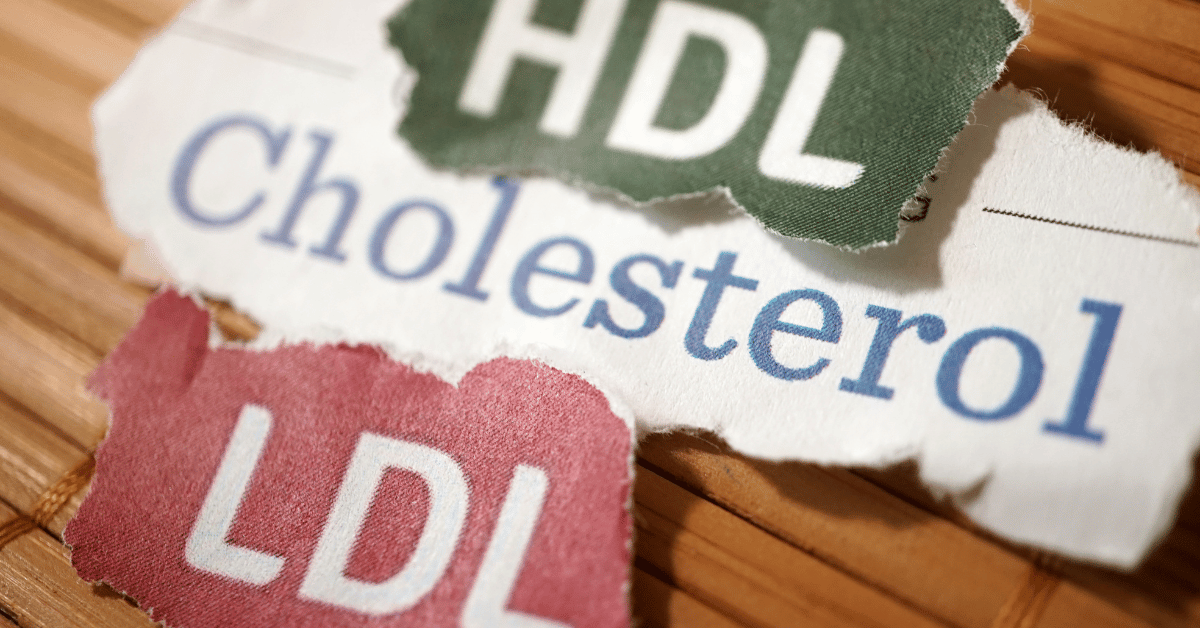High cholesterol is a prevalent health concern affecting a significant portion of the American population. Statistics from the CDC indicating that two in five adults grapple with elevated cholesterol levels. Understanding the nuances of cholesterol, its different types, and the profound impact of dietary choices on its management is paramount for safeguarding heart health and mitigating associated risks.
What is Cholesterol?
Cholesterol, a lipid-like substance, plays a vital role in various physiological processes within the body, including cell membrane structure, hormone synthesis, and bile production. However, an imbalance in cholesterol levels, particularly elevated LDL (low-density lipoprotein) cholesterol, often termed “bad” cholesterol. It can precipitate atherosclerosis—a condition characterized by the accumulation of plaque within arterial walls, leading to restricted blood flow and an increased risk of cardiovascular events such as heart attacks and strokes.
Impact of Diet on Cholesterol
Harnessing the power of dietary modifications represents a natural and effective strategy for managing cholesterol levels and preventing heart disease. By making informed choices and incorporating wholesome alternatives into daily meals, individuals can proactively address cholesterol concerns. Here’s a closer look at some dietary swaps to consider:
1. Opt for Low-Fat Dairy
Full-fat dairy products, rich in calcium and vitamin D, also contain saturated fats, which raise LDL cholesterol levels. Opting for low-fat or fat-free alternatives like skim milk, low-fat yogurt, and reduced-fat cheese lets you enjoy dairy’s nutrients without harming your heart. Adding heart-healthy foods like almonds or chia seeds enhances the nutritional value of dairy dishes, offering unsaturated fats and protein.
2. Choose Lean Protein Sources
Traditional protein sources like red meats contain high levels of saturated fat, worsening cholesterol imbalances. Opting for lean protein alternatives like skinless poultry, omega-3-rich fatty fish (e.g., salmon, mackerel), legumes (beans, lentils, chickpeas), and tofu provides a cholesterol-friendly option. These proteins offer essential amino acids for muscle repair and growth with lower saturated fat levels. This helps with promoting heart health and dietary diversity.
3. Avoid Highly Processed Foods
Highly processed foods, often characterized by their convenience and prolonged shelf life, frequently harbor excessive amounts of unhealthy fats, added sugars, and refined carbohydrates. Consuming these items regularly can contribute to elevated cholesterol levels and escalate the risk of cardiovascular complications. Instead, prioritizing whole, minimally processed foods—such as fresh fruits, vegetables, whole grains, and lean proteins—nourishes the body with essential nutrients, fiber, and antioxidants, fostering optimal heart health and overall well-being.
4. Limit Fried Foods
Indulging in fried delicacies, from crispy chicken to golden-brown French fries, exposes individuals to trans fats—a type of unsaturated fat with detrimental effects on cholesterol metabolism and cardiovascular health. In addition, by curtailing the consumption of fried foods and favoring healthier cooking methods like grilling, baking, or steaming, individuals can mitigate their intake of harmful fats and lower their risk of developing cholesterol-related complications. Additionally, opting for quality oils and avoiding partially hydrogenated oils can further safeguard heart health.
Additional Tips for Heart Health
In tandem with dietary modifications (Check out the Mediterranean Diet), cultivating a heart-healthy lifestyle encompasses various facets of daily living. Engaging in regular physical activity, managing stress levels, prioritizing adequate sleep, and refraining from tobacco use are integral components of a comprehensive approach to cardiovascular wellness. Furthermore, maintaining a healthy body weight and limiting alcohol consumption contribute to overall heart health. It also helps reduce the likelihood of cholesterol-related complications.
The American Heart Association’s Life’s Essential 8 guidelines can help people stay on top of
their cardiovascular health. These guidelines combine a range of healthy lifestyle interventions,
including diet, sleep, exercise, quitting tobacco use and more.
Empowering individuals with knowledge and practical strategies helps them take charge of their cholesterol levels and safeguard their cardiovascular health. Embracing wholesome, nutrient-rich foods and heart-healthy lifestyle habits starts a transformative journey toward long-term well-being. Every positive change, no matter how small, contributes to significant improvements in heart health and enhances overall quality of life.

